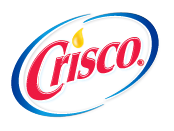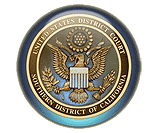Related Research Articles

A patent is a form of intellectual property that gives its owner the legal right to exclude others from making, using, selling and importing an invention for a limited period of years, in exchange for publishing an enabling public disclosure of the invention. In most countries patent rights fall under civil law and the patent holder needs to sue someone infringing the patent in order to enforce his or her rights. In some industries patents are an essential form of competitive advantage; in others they are irrelevant.

Eolas is a United States technology company accused of mainly acting as a patent troll and described as "The Web’s longest nightmare". It was founded in 1994 by Michael David Doyle.
Under United States patent law, a continuing patent application is a patent application that follows, and claims priority to, an earlier-filed patent application.

Crisco is a brand of shortening produced by The J.M. Smucker Company popular in the United States. Introduced in June 1911 by Procter & Gamble, it was the first shortening to be made entirely of vegetable oil (cottonseed). Additional products marketed by Smucker under the Crisco brand include a cooking spray, various olive oils, and other cooking oils, including canola, corn, peanut, olive, sunflower, and blended oils.
Business method patents are a class of patents which disclose and claim new methods of doing business. This includes new types of e-commerce, insurance, banking and tax compliance etc. Business method patents are a relatively new species of patent and there have been several reviews investigating the appropriateness of patenting business methods. Nonetheless, they have become important assets for both independent inventors and major corporations.
The Patent Reform Act of 2005 was United States patent legislation proposed in the 109th United States Congress. Texas Republican Congressman Lamar S. Smith introduced the Act on 8 June 2005. Smith called the Act "the most comprehensive change to U.S. patent law since Congress passed the 1952 Patent Act." The Act proposed many of the recommendations made by a 2003 report by the Federal Trade Commission and a 2004 report by the National Academy of Sciences.
Under United States law, a patent is a right granted to the inventor of a (1) process, machine, article of manufacture, or composition of matter, (2) that is new, useful, and non-obvious. A patent is the right to exclude others from using a new technology. Specifically, it is the right to exclude others from making, using, selling, offering for sale, importing, inducing others to infringe, and/or offering a product specially adapted for practice of the patent.
In international law and business, patent trolling or patent hoarding is a categorical or pejorative term applied to a person or company that attempts to enforce patent rights against accused infringers far beyond the patent's actual value or contribution to the prior art, often through hardball legal tactics. Patent trolls often do not manufacture products or supply services based upon the patents in question. However, some entities which do not practice their asserted patent may not be considered "patent trolls" when they license their patented technologies on reasonable terms in advance.
NTP, Inc. is a Virginia-based patent holding company founded in 1992 by the late inventor Thomas J. Campana Jr. and Donald E. Stout. The company's primary asset is a portfolio of 50 US patents and additional pending US and international patent applications. These patents and patent applications disclose inventions in the fields of wireless email and RF Antenna design. The named inventors include Andrew Andros and Thomas Campana. About half of the US patents were originally assigned to Telefind Corporation, a Florida-based company partly owned by Campana.
In United States patent law, a reexamination is a process whereby anyone—third party or inventor—can have a U.S. patent reexamined by a patent examiner to verify that the subject matter it claims is patentable. To have a patent reexamined, an interested party must submit prior art, in the form of patents or printed publications, that raises a "substantial new question of patentability". The Leahy-Smith America Invents Act makes substantial changes to the U.S. patent system, including new mechanisms for challenging patents at the U.S. Patent and Trademark Office. One of the new mechanisms is a post-grant review proceeding, which will provide patent challengers expanded bases on which to attack patents.
This is a list of legal terms relating to patents. A patent is not a right to practice or use the invention, but a territorial right to exclude others from commercially exploiting the invention, granted to an inventor or his successor in rights in exchange to a public disclosure of the invention.
DataTreasury, located in Plano, Texas, United States, develops, acquires and licenses technology for secure check image capture and storage. As of 2010 the company had 2 employees, about 1000 shareholders and had generated over $350 million in licensing revenue in the previous four years.

Alcatel-Lucent v. Microsoft Corp., also known as Lucent Technologies Inc. v. Gateway Inc., was a long-running patent infringement case between Alcatel-Lucent and Microsoft litigated in the United States District Court for the Southern District of California and appealed multiple times to the United States Court of Appeals for the Federal Circuit. Alcatel-Lucent was awarded $1.53 billion in a final verdict in August 2007 in the U.S. District Court for the Southern District of California in San Diego. The damages award was reversed on appeal in September 2009, and the case was returned for a separate trial on the amount of damages.
The Patent Reform Act of 2007 was a bill introduced in the 110th United States Congress to introduce changes in United States patent law. Democratic Congressman Howard Berman introduced the House of Representatives bill on April 18, 2007. Democratic Party Senator Patrick Leahy introduced the Senate bill on April 18, 2007. The bill passed the house but died in the Senate.
The Coalition for Patent Fairness (CPF) is an ad hoc organization of companies who are lobbying for reforms to the US patent system. In general they believe that the United States Patent and Trademark Office is too prone to grant overly broad patents. They feel that these overly broad patents and the level of damages that legitimate patent holders can obtain through courts is so high that it inhibits innovation. They were strongly in favor of the Patent Reform Act of 2007 and its successors the Patent Reform Act of 2009 and the America Invents Act.

The Procter & Gamble Company (P&G) is an American multinational consumer goods corporation headquartered in Cincinnati, Ohio, founded in 1837 by William Procter and James Gamble. It specializes in a wide range of personal health/consumer health, and personal care and hygiene products; these products are organized into several segments including Beauty; Grooming; Health Care; Fabric & Home Care; and Baby, Feminine, & Family Care. Before the sale of Pringles to Kellogg's, its product portfolio also included foods, snacks, and beverages. P&G is incorporated in Ohio.
American Innovators for Patent Reform (AIPR), a non-profit organization based in New York City, is a coalition of inventors, patent owners, researchers, engineers, entrepreneurs, corporate executives, patent agents and attorneys, and others involved in creating or protecting innovation and advocating for stronger patent protection in the ongoing debate on patent reform.

The Leahy–Smith America Invents Act (AIA) is a United States federal statute that was passed by Congress and was signed into law by President Barack Obama on September 16, 2011. The law represents the most significant legislative change to the U.S. patent system since the Patent Act of 1952 and closely resembles previously proposed legislation in the Senate in its previous session.
i4i is an independent software company specializing in the delivery of XML / SGML document processing software in Toronto, Ontario, Canada, founded by Michel Vulpe in 1993.
References
- ↑ Scott M Fulton III, "Patent Reform Legislation Aims to End Massive Settlement Fees", BetaNews April 18, 2007
- ↑ "Coalition criticizes patent legislation.", Biotech Patent News, August 2007
- ↑ Anne Broach, "Congress takes new stab at patent system overhaul", CNET News , April 18, 2007
- ↑ Wegner, Hal, "Wegner on Patent Reform", Patently O Blog , April 27, 2007
- ↑ "Key Principles for Reform" CFCPR Web Site, last viewed 1/20/08
- ↑ "Who We Are", CFCPR web site, last viewed Jan 20. 2008
- ↑ "Statement: Coalition for 21st Century Patent Reform", IPFrontline, April 19, 2007